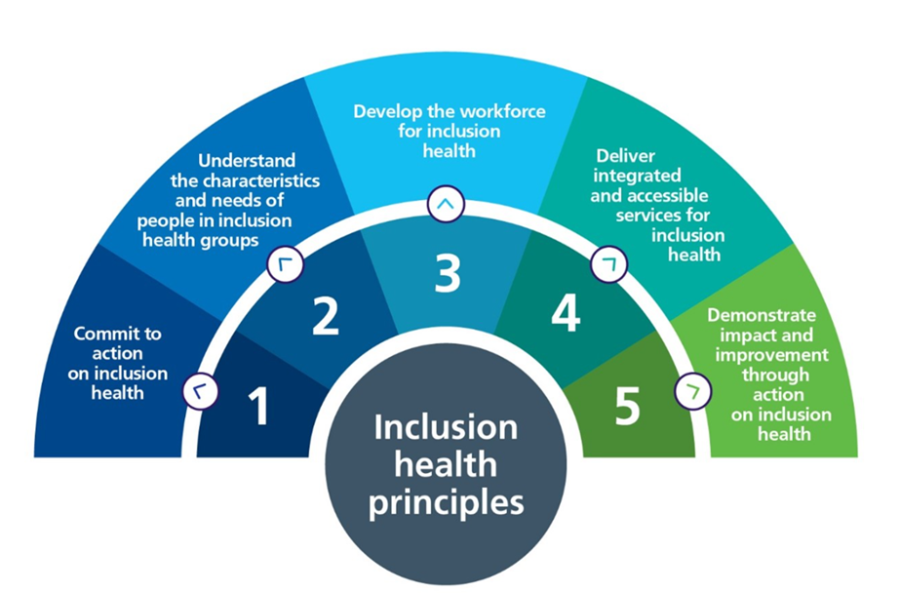People who are socially excluded are likely to have the following experiences in common:
- Discrimination and stigma
- Violence and the experience of trauma
- Poverty
- Invisibility in health datasets
Which result in:
- Insecure and inadequate housing
- Very poor access to healthcare services due to service design
- Poor experience of public services
- Poorer health than people in other socially disadvantaged groups.
Inclusion health groups include: people experiencing homelessness, drug and alcohol dependence, vulnerable migrants, Gypsy, Roma and Traveller communities, sex workers, people in contact with the justice system, victims of modern slavery and other socially excluded groups.
A national framework for NHS - action on inclusion health was published in October 2023.
The framework is based on five principles for action on inclusion health, outlining actions to address issues which are common across inclusion health groups. The framework focuses on the role that the NHS plays in improving healthcare, highlighting the importance of working in partnership across sectors and with other members of the Integrated Care System. As the NHS inequalities approach matures, there will be future requirements on ICBs and NHS Trusts to report data on Inclusion Health.
Tackling Inclusion Health in the South East - OHID webinar slides